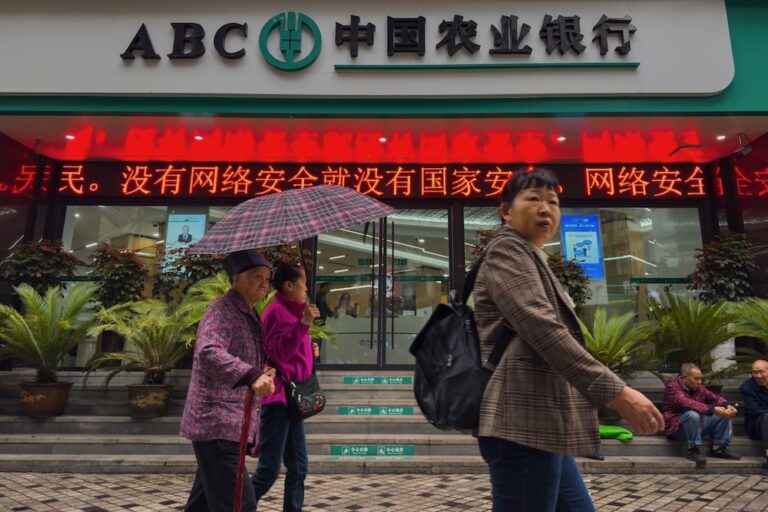(HRW/IFEX) – Human Rights Watch (HRW) has called upon British Prime Minister Tony Blair to use the first ever European Union (EU)-China summit to define concrete benchmarks for human rights improvements in China and Tibet. In a letter made public on 1 April 1998, HRW urged Blair to use the London summit to present Chinese […]
(HRW/IFEX) – Human Rights Watch (HRW) has called upon British Prime Minister
Tony Blair to use the first ever European Union (EU)-China summit to define
concrete benchmarks for human rights improvements in China and Tibet. In a
letter made public on 1 April 1998, HRW urged Blair to use the London summit
to present Chinese Prime Minister Zhu Rongji with the EU benchmark. “On
February 23, British Foreign Secretary, Mr. Robin Cook, announced that the
EU would abandon any effort to sponsor or support a resolution on China at
the U.N Commission on Human Rights in Geneva and instead would focus on
‘dialogue,'” the group said in its letter. “However,” it continued,
“‘dialogue’ currently takes place without any publicly known agenda based on
which results could be measured” (the full text of the letter is available
at the HRW website).
HRW charged that the EU has settled for minimal and incomplete responses
from Beijing on a list of ten political prisoners raised by the EU during a
recent “dialogue” meeting with Chinese officials. To back up its contention
that Great Britain, now in the EU presidency, was setting out a “low
threshold” on human rights, HRW made public a document entitled “EU List of
Individual Cases,” which it said it obtained from diplomatic sources.
Alongside the names of ten Chinese and Tibetan prisoners listed in the
document are appended short statements furnished by Chinese authorities (one
or two sentences in most cases) indicating that they are in “good health”
but providing no additional details or documentation. In two cases, that of
Ngawang Choephel, a well-known Tibetan and Fulbright scholar, serving an
eighteen-year sentence in an unknown location, as well as that of Liu
Nianchun, an imprisoned labor activist held in a labor camp, the appended
statement merely reads “no information given.” More striking still is the
authorities’ claim that Gendhun Choekyi Nyima, the eight-year-old Tibetan
Panchen Lama, is “attending school as a normal child.” There exist
conflicting reports about the child’s whereabouts, and no independent source
has been able to verify this claim. Chinese officials have denied all
requests by visiting delegations to meet the child in person.
In its letter to Blair, HRW urged the EU to reject the Chinese response as
wholly inadequate, and to request immediate access to Gendhun Choekyi Nyima.
They also asked the Foreign Secretary to make public any further lists of
prisoners given to Beijing so as to allow independent groups to provide
additional information about their whereabouts and welfare. HRW also noted
that the Chinese government intends to voice major reservations to two
important international human rights treaties, the International Covenant on
Economic, Social and Cultural Rights, signed in New York last October, and
the International Covenant on Civil and Political Rights, which the Chinese
foreign minister announced in March that China is preparing to sign. The EU
has pointed to the anticipated signing of both treaties as a sign of
“progress” on human rights as a means of justifying its decision not to
sponsor a resolution on China at the UN Commission in Geneva. In recent
discussions with Chinese legal experts in Beijing, however, British
officials were informed that China was likely to attach reservations to key
provisions guaranteeing the right to form free trade unions and the right to
free expression, among others. As HRW stated in its letter to Blair, “the EU
should publicly state that such reservations would be unacceptable and would
be a major setback to China’s obligations [under the two treaties.” The
letter also made several other specific recommendations for the EU’s human
rights agenda with China.


